Is a bot your next employee?
As AI continues to evolve rapidly, will bots become an essential part of your business' workforce?

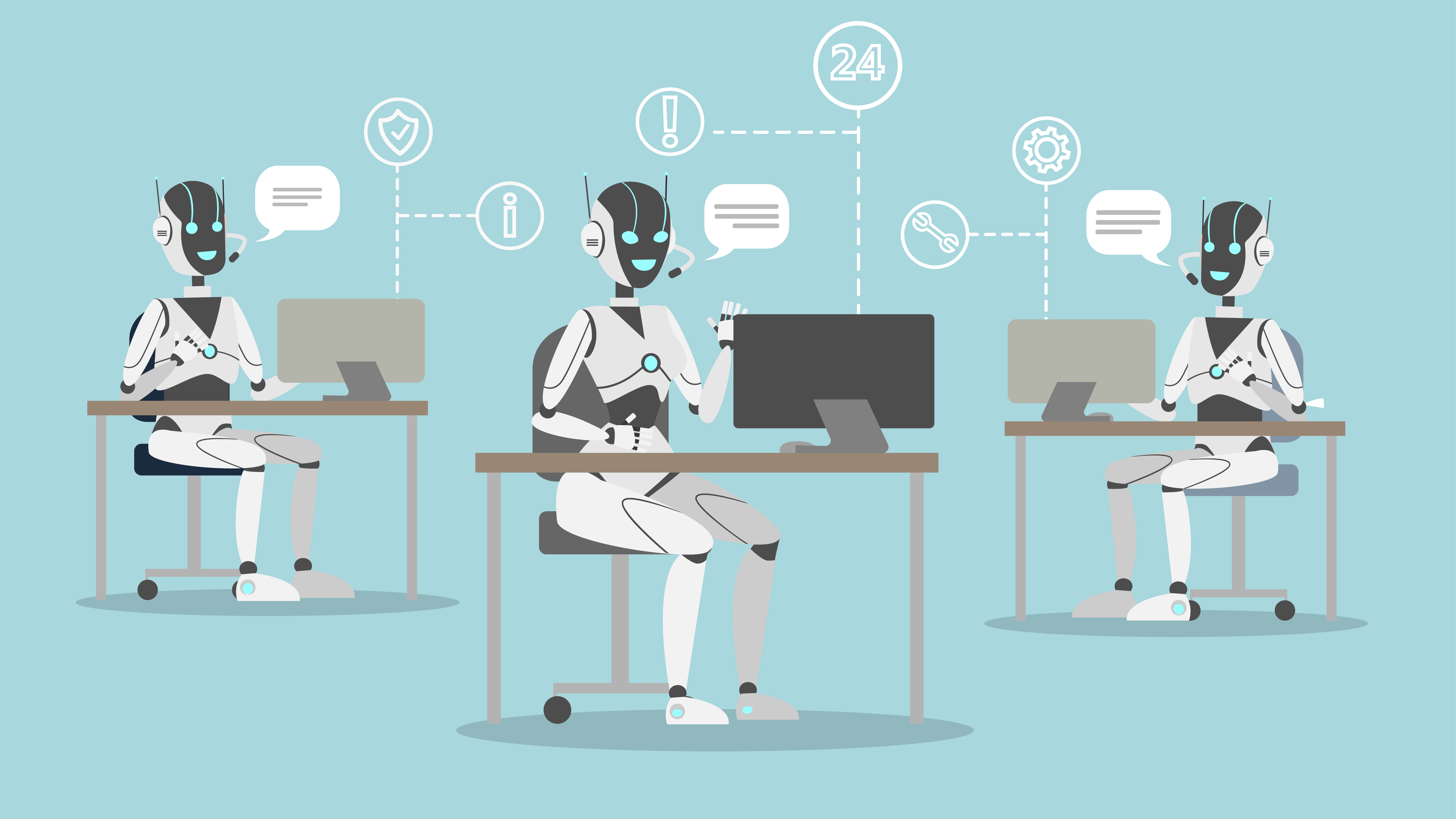
According to Gartner, by 2020, we may have more conversations with bots than our spouses thanks to the increased use of bots across many business functions and processes. Small businesses, in particular, are considering how bot technology could enable them to reduce costs, improve efficiency and create an agile company that is fit to deliver the high level of service consumers now demand.
Indeed, Capgemini found nearly 70% of UK consumers say they will progressively replace visits to a store or bank with their voice assistant within three years. Consumer satisfaction is also increasing: In 2017, 61% of UK consumers expressed their satisfaction in using a voice-based personal assistant like Google Assistant or Siri on their smartphones; this number rose to 70% in 2019.
Chatbot technology has advanced thanks to artificial intelligence (AI) and machine learning, which underpin how bots can interact with their users. Chatbots can deliver rapid response times to customer queries. According to IBM, when Autodesk implemented its Watson Conversation platform, the company was able to cut response times for some queries from 38 hours to just 5.4 minutes.
For your business, response time is now a commercial imperative. The Millennial group of consumers, in particular, want almost immediate responses when they contact your business. Chatbots can become your company's first point of contact in this scenario. It is, though, vital to ensuring your business has processes in place to quickly pass a query to a human operative when needed. This seamless process is critical to ensure your company gains the most advantage from chatbot technology.
This has increasingly led business owners to ask if HR could use chatbots instead of hiring people for specific roles within their company? John Menhinick, product director for Adaptive Intelligence at Oracle UK & Ireland tells IT Pro: "It's no secret we are dealing with a global skills shortage and facing an uncertain economic future. Our research suggests a greater number of HR departments are considering the use of chatbots. In fact, 43% of HR leaders said they're excited about how AI will affect the future of work a major jump from 2018's 24%."
Menhinick continues: "It is true that some careers will inevitably become obsolete as more chatbots are deployed. However, this isn't to say that recruitment will decline. New roles will be created as businesses look for people to help them capitalise on the use of AI. This is similar to when personal computing was deployed the workforce adapted to using computers even though many processes originally undertaken by people were sacrificed."
Bot technology is rapidly developing. Currently, bots should be used to complement existing processes across your business as they aren't intelligent enough to be given full autonomy. Integrating bots with the human capital your business possesses is proving to be a successful approach for many companies and organisations that have embraced bot technologies.
Sign up today and you will receive a free copy of our Future Focus 2025 report - the leading guidance on AI, cybersecurity and other IT challenges as per 700+ senior executives
RELATED RESOURCE
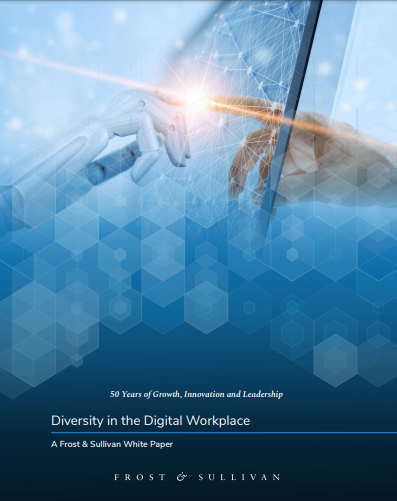
Diversity in the digital workplace
The future of work is a collaborative effort between humans and robots
More than human
It can be very easy for businesses to see bots as the solution to rising costs in their customer services. However, a wholesale move to bot technology should be avoided. The most efficient use of bots is to support your business' existing human resources.
Stan Sthanunathan, executive vice president at Unilever, says: "The biggest experience that we've had is to not look at conversational interfaces as a cure for all the problems that you have, but instead, to use them to augment human intelligence. These interfaces eliminate anywhere between 20% and 30% of issues reaching the human agents because they are answered then and there. And even when the issue is guided to a human being, it's actually a lot more purposeful."
Dirk Buyens, professor of international HR management at Vlerick Business School, tells IT Pro: "Businesses are certainly looking closely into how chatbot technology could be used in their practices but, I wouldn't say this is specifically to replace employees. Businesses are looking into increasing their automation, to improve their services, increase performance and make their employees lives a lot easier."
This view is reinforced by Martin Linstrom, managing director for UK and Ireland at IPsoft, who tells IT Pro: "The challenge for many brands is getting the right balance between automation and humanisation of the customer experience. Getting the right technology that not only understands the words but the context, intent and emotional sentiment of the customer, will be key to providing a quality option to augment the capacity of human switchboard staff."
Your automated business
Chatbots closely tie into customer experience (CX), which is today often a significant differentiator when consumers choose which businesses to buy goods for services from. According to research from IBM, 57% of respondents said responding to customer demands for more personalised experiences is their number one reason for adopting AI.
These personalised experiences will also become more autonomous. "Soon, we'll see massive leaps in functionality as bots, and associated technologies continue to advance," Accenture Digital states in a recent report. "Within the next year, for example, bots will be able to act without human intervention and take relevant actions in light of a problem's context although integration across nodes, interfaces, and ecosystems will remain a challenge."
For example, Marks & Spencer reports saving an estimated 2 million in sales-related costs after implementing a chatbot. The bot helps their customers troubleshoot problems with discount codes and orders, with 70% of queries being resolved without the need for any human intervention.
It's unlikely in the medium to long-term future that your business would choose a bot over a human employee, though they are not interchangeable commodities. However, bot technology is reaching a point where it can be used to support many customer services functions across your business.
RELATED RESOURCE

Diversity in the digital workplace
The future of work is a collaborative effort between humans and robots
Speaking to IT Pro, Julie Provino, an international HR expert and the founder of VeryHR, explains: "However well-built the chatbots are, for now, they do not replace human contact. Now, I know that some firms out there are developing empathic tones to their chatbots with the aim of developing AI towards a more human-like experience, but we are not there yet. People are still expecting to receive a discretionary treatment, some empathy and to speak to a human being to actually gain the most from their experience. This is the reason why, for the time being, a two-tiered approach is the most sought after."
The early adopters of bots have clearly shown that can deliver tangible benefits. Accenture's survey indicates that 91% of businesses that implement bots expect to see one to five times return on their investment within the first 12 months. And while bots are currently focused on customer service delivery with HR using them for repetitive tasks, it's clear they will eventually touch every aspect of your business.
However, this shouldn't be forced. Look closely at the current capabilities of bots and match these to precise business processes. The bots that are delivering the best results to businesses today are carefully integrated into the processes and staff they support.
David Howell is a freelance writer, journalist, broadcaster and content creator helping enterprises communicate.
Focussing on business and technology, he has a particular interest in how enterprises are using technology to connect with their customers using AI, VR and mobile innovation.
His work over the past 30 years has appeared in the national press and a diverse range of business and technology publications. You can follow David on LinkedIn.
-
 The modern workplace: Standardizing collaboration for the enterprise IT leader
The modern workplace: Standardizing collaboration for the enterprise IT leaderHow Barco ClickShare Hub is redefining the meeting room
-
 Interim CISA chief uploaded sensitive documents to a public version of ChatGPT
Interim CISA chief uploaded sensitive documents to a public version of ChatGPTNews The incident at CISA raises yet more concerns about the rise of ‘shadow AI’ and data protection risks
-
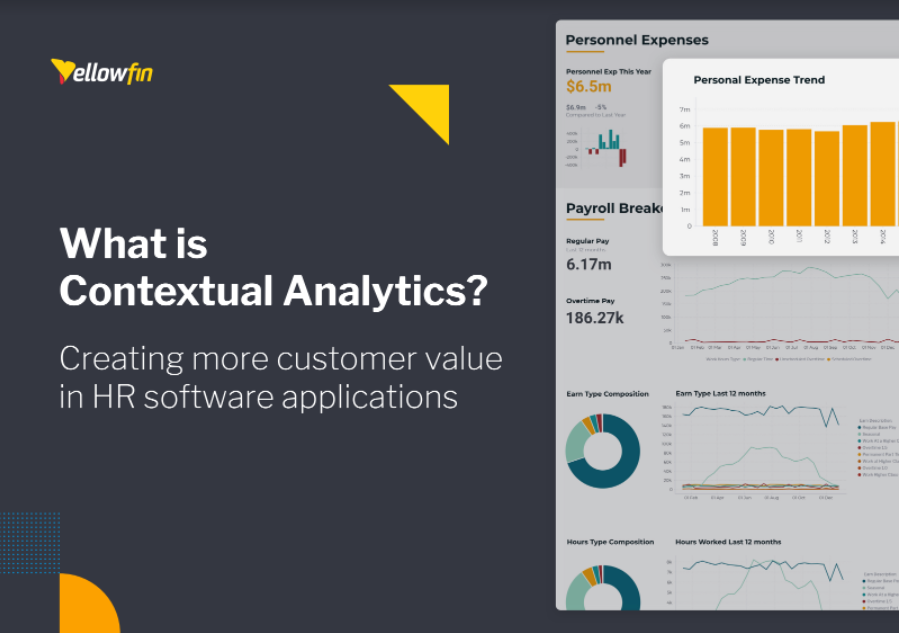 What is contextual analytics?
What is contextual analytics?Whitepaper Creating more customer value in HR software applications
-
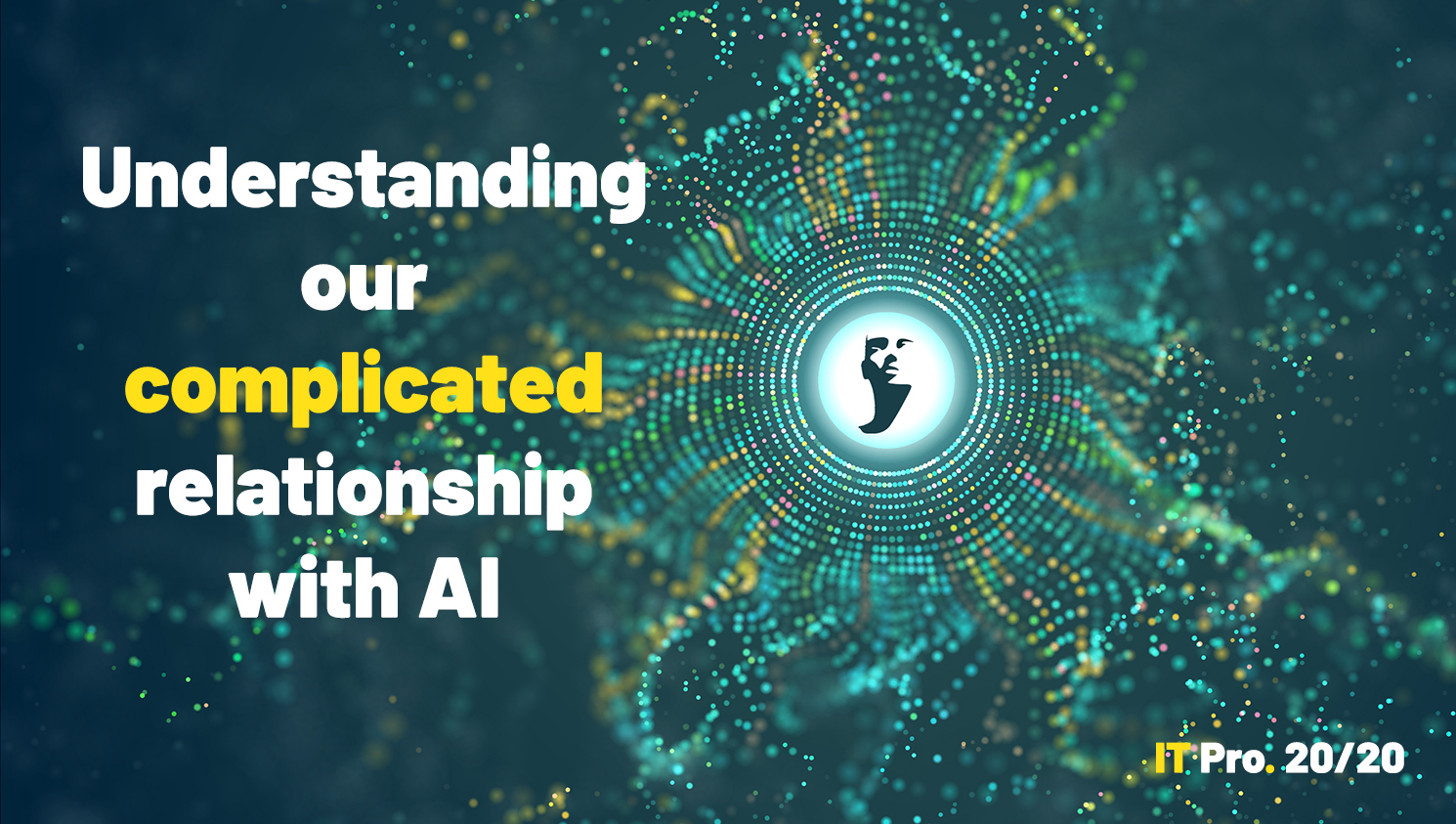 IT Pro 20/20: Understanding our complicated relationship with AI
IT Pro 20/20: Understanding our complicated relationship with AIIT Pro 20/20 The 16th issue of IT Pro 20/20 looks at the very human problems associated with artificial intelligence
-
 Amazon’s HR proves artificial intelligence is truly dumb
Amazon’s HR proves artificial intelligence is truly dumbOpinion We don't know how neural networks see our world, and that's hilarious and scary
-
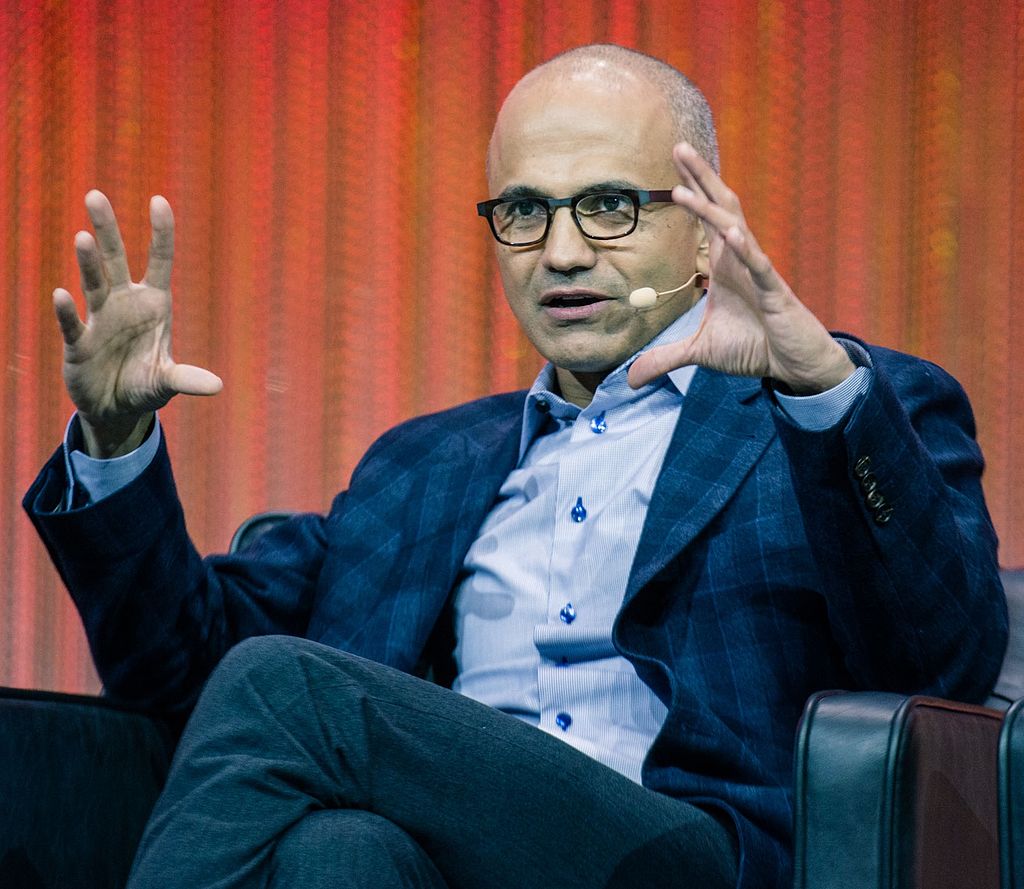 Satya Nadella: Microsoft will build ethical AI
Satya Nadella: Microsoft will build ethical AINews Microsoft chief says ethics must be taken seriously as AI begins to change society
